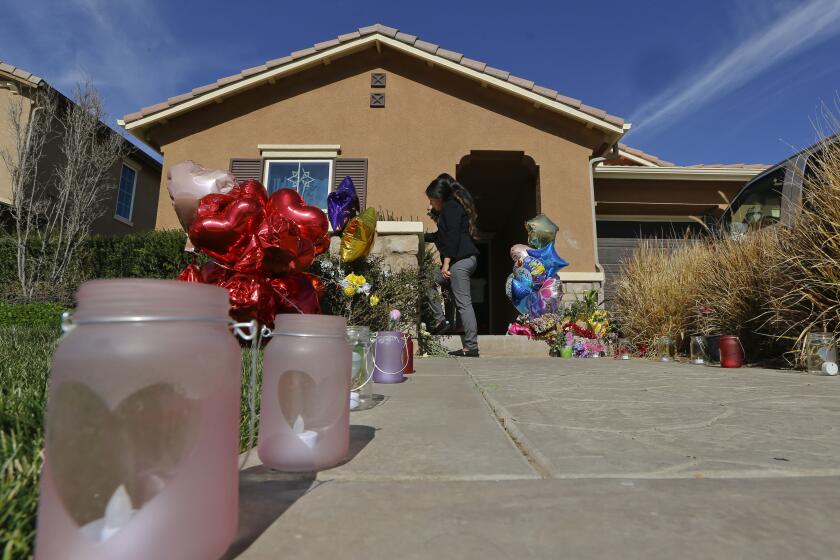City’s Hip Image Takes a Hit With Last Budget Cuts : Government: ‘We can’t be all things to all people anymore,’ a councilman says. Even the council will feel the pinch--one meeting a month fell to the ax.
In the final analysis, it was as simple as shaving a little here and chiseling a little there in order to come up with a balanced $296-million budget.
But the most recent cuts and modifications in the city’s 1992-93 budget, carried out Tuesday by the City Council, were like performing surgery without an anesthetic on the city’s progressive image, several council members suggested.
“We can’t be all things to all people anymore,” a frustrated Councilman William Thomson said toward the end of the five-hour budget debate. “We’ve got to admit that.”
In the city’s atmosphere of newly heightened austerity, there will be, among other things, fewer hours of library service, elimination of a program for elderly crime victims, one less council meeting per month, suspension of street light installations and 36 fewer employees.
The prospects are for even more parsimonious budgets down the road. City budget officials predict increasing revenue shortages over the next five years because the recession’s local impact.
But the council--which in recent years has helped fund a soup kitchen for the homeless, approved sex education and condom distribution for teen-agers and directed a wealth of new services to predominantly black Northwest Pasadena--isn’t giving up without a fight.
Tuesday the council pared travel expenses for city employees and council members by $30,000, reduced car allowances across the board by about $40,000, and cut into a narrow cushion of reserves by $25,000 in order to save an AIDS program, let the main branch of the Pasadena Public Library stay open on Sunday and provide staff services for two neighborhood committees in redevelopment areas.
It was the city’s 500 managerial employees, however, who provided the keystone to the budgetary structure.
With prospects for even deeper cuts in the library budget--whose employees have voluntarily foregone $100,000 in scheduled pay raises this year--and more cuts in social service and housing programs, the city’s managers agreed to skip merit pay raises for the remainder of the fiscal year.
The managers in effect froze their salaries until next July at the earliest, saving the city about $500,000.
Nevertheless, it was a bitter pill for city staff to swallow. Several hundred managers jammed the council chambers to express their disenchantment with statements by council members and residents who suggested that they are too well compensated.
Managerial employees have already lost $1.2 million in earlier rounds of budget cuts, losing tuition reimbursement, long-term disability and workers compensation benefits, Human Services Coordinator George Chapjian said.
“While you can easily calculate the amount of money that will be saved if you eliminate merit pay, reduce salaries, institute mandatory furloughs and other incentives,” Chapjian said, “we suggest that you need to factor in what the city will lose through the exodus of dedicated management employees. . . . “
Like other cities in the San Gabriel Valley, Pasadena was stricken last month with $4 million in losses of property taxes and redevelopment funds when the Legislature balanced the state budget by cutting funds for cities and counties.
Anticipated revenue shortfalls prompted by the recession will probably dictate more cuts during the year, council members said. The council’s finance committee will begin holding hearings next month on a series of additional austerity measures, including cuts in consultant contracts and the budgets of city commissions and elimination of a city newsletter.
The committee will also consider various plans to reduce the number of days that City Hall remains open by closing it either once a week or once every two weeks.
The council finally approved the new budget by a 5-1 vote, with Councilman Isaac Richard voting against it. Councilman Jess Hughston was absent.
The budget cuts “fall too heavily on the Northwest,” said Richard, referring to the working-class neighborhood he represents.
Richard contended that cuts in such city operations as the Affirmative Action Department (which seeks to ensure that minority entrepreneurs get a share of city business) and the city clerk’s office (which registers voters), had an inordinate effect on minority residents.
Richard said he favored, among other things, layoffs of non-minority city employees and elimination of the newsletter in order to preserve programs affecting Northwest Pasadena.
More to Read
Sign up for Essential California
The most important California stories and recommendations in your inbox every morning.
You may occasionally receive promotional content from the Los Angeles Times.










